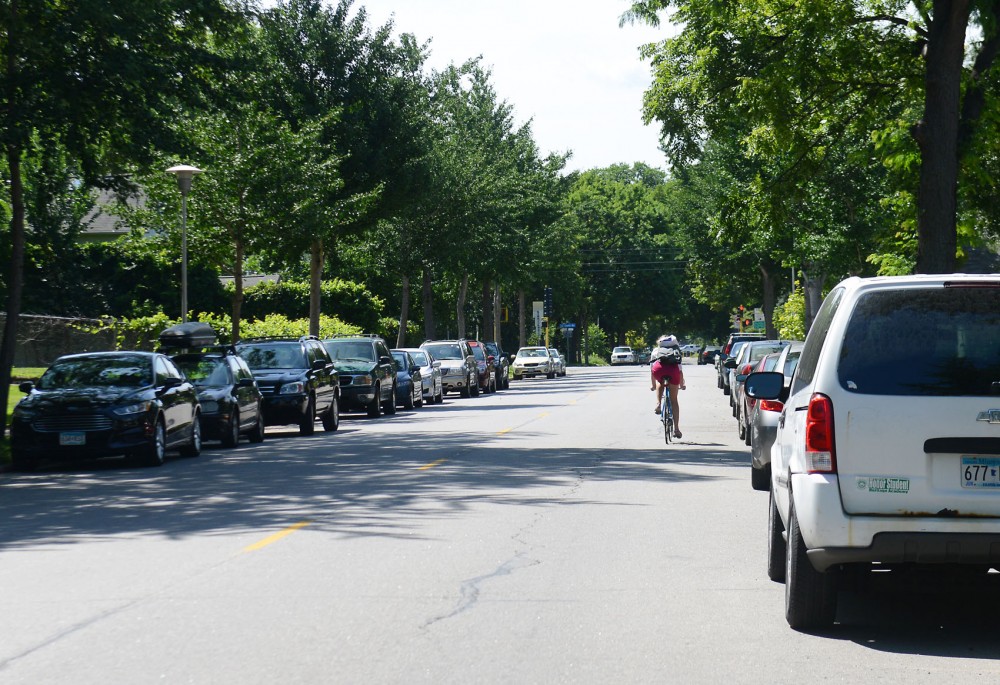Access to federal funding is making it possible for Minneapolis to install protected bikeways along streets near the University of Minnesota.
The U.S. Department of Transportation granted the Metropolitan Council more than $950,000 in June to put toward a path lining 18th Avenue Southeast in Southeast Como according to preliminary plans. Though a protected bikeway could keep bicyclists safe from traffic, drivers and area residents are concerned about losing parking.
The lane — which could extend along 18th Avenue Southeast between Como Avenue Southeast and East Hennepin Avenue — would eliminate parking spots in an area with already heavily used parking, said Ricardo McCurley, executive director of the Southeast Como Improvement Association (SECIA).
“We already have problems with parking,” he said. “This could make it worse.”
The city has yet to decide the lane’s specifics, including whether it’ll run along 18th Avenue Southeast or an alternate side street, bicycle and pedestrian coordinator Matthew Dyrdahl said.
City officials will make plans after they talk to community members about their wants and needs, he said, and the lane will not be installed until 2019.
“In a lot of places, we’ve noted that there will be tradeoffs … which means we need to consider alternatives,” Dyrdahl said.
Although other University-area streets, like Oak Street Southeast, are losing parking to bike lanes, he said each street is considered on an individual basis before a pathway is installed.
City officials monitor a street’s need for parking along with car traffic when choosing which streets will receive bike lanes, Dyrdahl said.
A protected lane would help keep bicyclists safe by creating a physical barrier between the bicyclist and cars, he said.
As a bicyclist, driver and a resident along the street, chemical engineering senior Joe Carlson said he would benefit from the bike lane connection between East Hennepin Avenue and the University-area and wouldn’t miss the parking spots.
“There is a lot of students who bike on 18th, but I never park on this street because of the traffic,” he said. “I’m afraid that I might get rear ended.”
SECIA will host a public meeting in October to gather community input, McCurley said.








